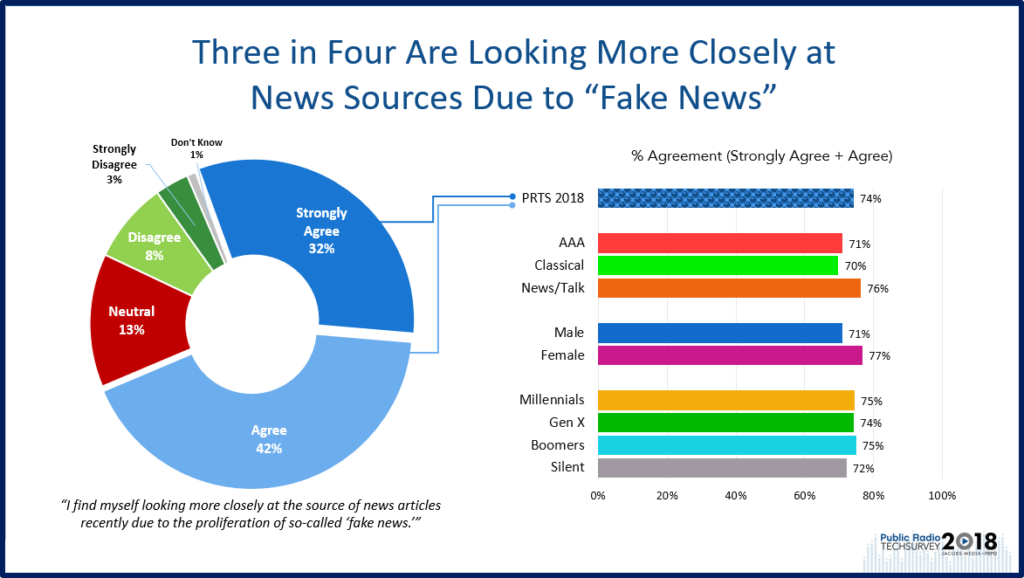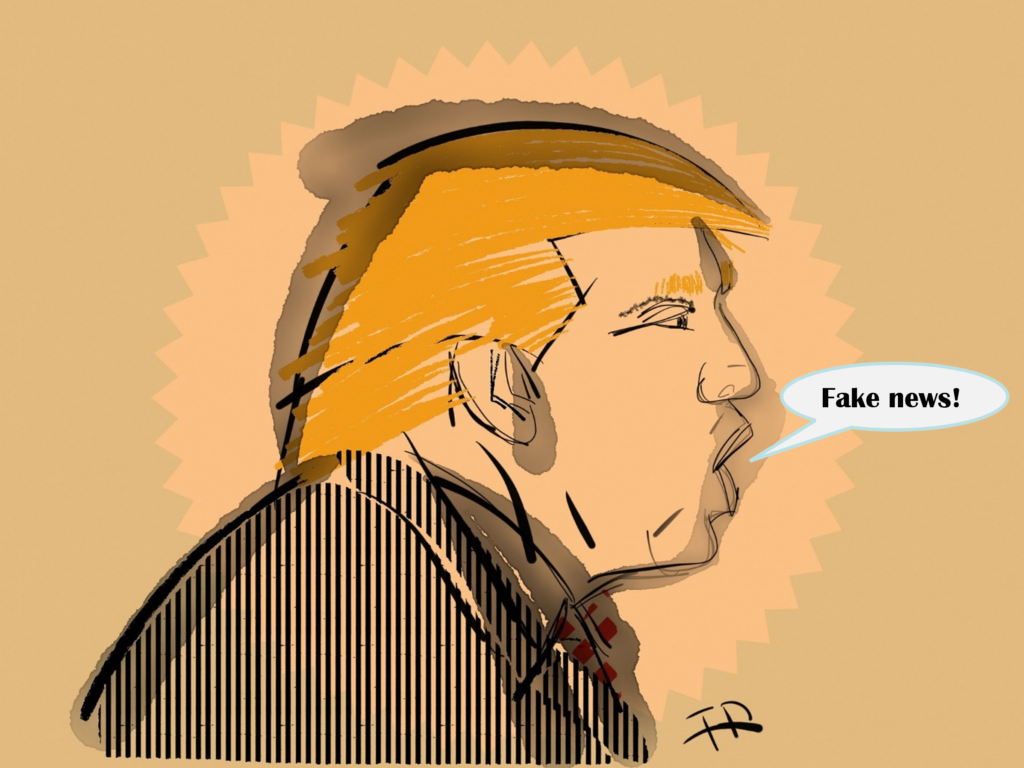
When Donald Trump coined the term “Fake News” just a few short years ago, many journalists, pundits, and commentators didn’t take it too seriously. It simply seemed like a convenient way for Trump to discredit news stories that didn’t suit his narrative. As we’ve learned, the 45th president has a way with brands and labels – and “Fake News” has stuck.
Put your politics aside, and consider the implications. This whole question over facts, truth, and credibility has intensified, infecting news coverage, political discourse, and the way information is disseminated. The term “fake” isn’t just reserved to news – it now covers myriad communications across all media outlets – from news organizations to social media to the everyday communications we receive every hour in our email boxes.
Now, we think twice before we open a suspicious looking email – no matter who it’s from. Has her account been hacked? Is this really Verizon contacting me? What happens if I click on this link? Why does American Express want me to contact them? The number looks familiar, but should I take this phone call?
In short, we don’t know what or who to believe. Axios addressed this mushrooming problem in a story over the weekend, Mike Allen and Sarah Fischer’s “We Live In A Fake World.” 
It’s a disturbing commentary on the growing trend that everything is fake – or might be. And it’s a must-read.
Whether its vaccines, unemployment numbers, online videos, social media posts, websites, bots, or polls, there’s no short of fake sources and information designed to sway, convince, manipulate, and scare us. And with each passing news cycle, exposé, and scandal, we become even more wary about the information we see on our laptops, tablets, smartphones, and TVs.
But what does all this “fakery” have to do with radio broadcasting, aside from News/Talk stations that are increasingly wallowing through these controversies?
If you’re a public radio station, it’s not just about your news programming that’s in the crosshairs – it’s your membership and fundraising activities. As Fischer and Allen note, “fake fundraisers” are becoming prominent in what they call our “unfiltered future.” After a while, do consumers simply stop believing in donation appeals, even core listeners?
We tested these waters in last year’s Public Radio Techsurvey that included this key question:

The results are telling…and chilling. Nearly three in four public radio listeners say they’re taking greater care to consider news sources due to the proliferation of “fake news.” And as you can see with the demographics, most public radio fans see it the same way regardless of age, with those who prefer News/Talk stations even more skeptical. And for good reason.
Keep in mind, these are the most educated radio listeners in America. The vast majority of them have college degrees; many have earned advanced degrees. And they are more than a little wary and distrustful of the news and information they see every day.
And the impact of this roiling environment threatens public radio’s fundraising machine – the main source of its income and revenue. If the audience is reticent about opening emails or even begins the question the voracity of a pledge drive, what affect might that have?
For commercial radio, the litany of possible damage is considerable. How will the constant assault of “fake” impact the audience’s willingness to join station email clubs?
And for those who have, if these listeners are slow to open station emails, or hesitant to click on offerings and coupons, sales marketing efforts are hampered.
For the many stations now selling ads on Facebook, how long will the audience believe these messages? And what impact will this have on a station’s credibility.
And then there are the commercials themselves. There’s no way to get questions answered or problems resolved on Facebook or Google. But radio sales operations are local, familiar, and hopefully, trusted marketing partners. Building on these relationships is something every local radio cluster should be focused on.
Radio traffic departments should also be on the alert to guard against “fake ads” especially in the political realm. As the campaign season heats up over the next 18 months, money will be flowing – but so will efforts to distort and upset voters. Radio stations have audience and advertisers to protect.
There’s also the audience research conundrum. Whether it’s your callout, your music tests, or your perceptual studies, a lower incidence of respondents answering the phone or opening emails translates to smaller and less representative samples, not to mention rising costs.
 And don’t forget the ratings machine. At Canadian Music Week earlier this month, I sat through an eye-opening presentation from Numeris – the equivalent of Nielsen ratings (they also use both the PPM and diary methodologies).
And don’t forget the ratings machine. At Canadian Music Week earlier this month, I sat through an eye-opening presentation from Numeris – the equivalent of Nielsen ratings (they also use both the PPM and diary methodologies).
The net net of their message to their radio clients was to announce changes to the way their diary ratings will be averaged due to having to cut back their audience surveys to every other week. And the culprit? Falling responses rates, due in large part to Canadians simply not responding to the offer to participate in radio ratings studies.
You can bet that Nielsen is confronting these same challenges here in the U.S. And because of the climate here in the 50 states, you have to believe conducting research is even more challenging in big and small markets. We see declining cooperation rates in our audience surveys, even though most communications come directly from a trusted source: your radio station.
But these days, the spate of “Fake News” is a firehose of misleading, biased, manipulative information designed to make us doubt everything we see and hear. While this may have a healthy side, “question everything” often transforms to “trust no one.”
That’s not just the government or politicians.
It’s radio stations and its personalities.
There’s never been a more important time to live up to your promises, be transparent, and do what you say you will do.
There are advantages to being real in an increasingly “fake” world.
We welcome your feedback on this post, but political comments will be deleted. – FJ
- The Exponential Value of Nurturing Radio Superfans - April 28, 2025
- What To Do If Your Radio Station Goes Through A Midlife Crisis - April 25, 2025
- A 2020 Lesson?It Could All Be Gone In A Flash - April 24, 2025




Truer words were never spoken.
There’s never been a more important time to live up to your promises, be transparent, and do what you say you will do.
There are advantages to being real in an increasingly “fake” world.
Fred, Thanks
Much appreciated, Jay. Thanks for the kind words & for reading our blog.
Hey Fred. Good points all. I preach it every day. On a related note, if you haven’t heard the new Michael Lewis podcast it’s a great listen. https://podcasts.apple.com/us/podcast/against-the-rules-with-michael-lewis/id1455379351
Appreciate it, Chris. Big fan of Michael Lewis but have NOT heard the podcast. TY for sending & great the hear from you.